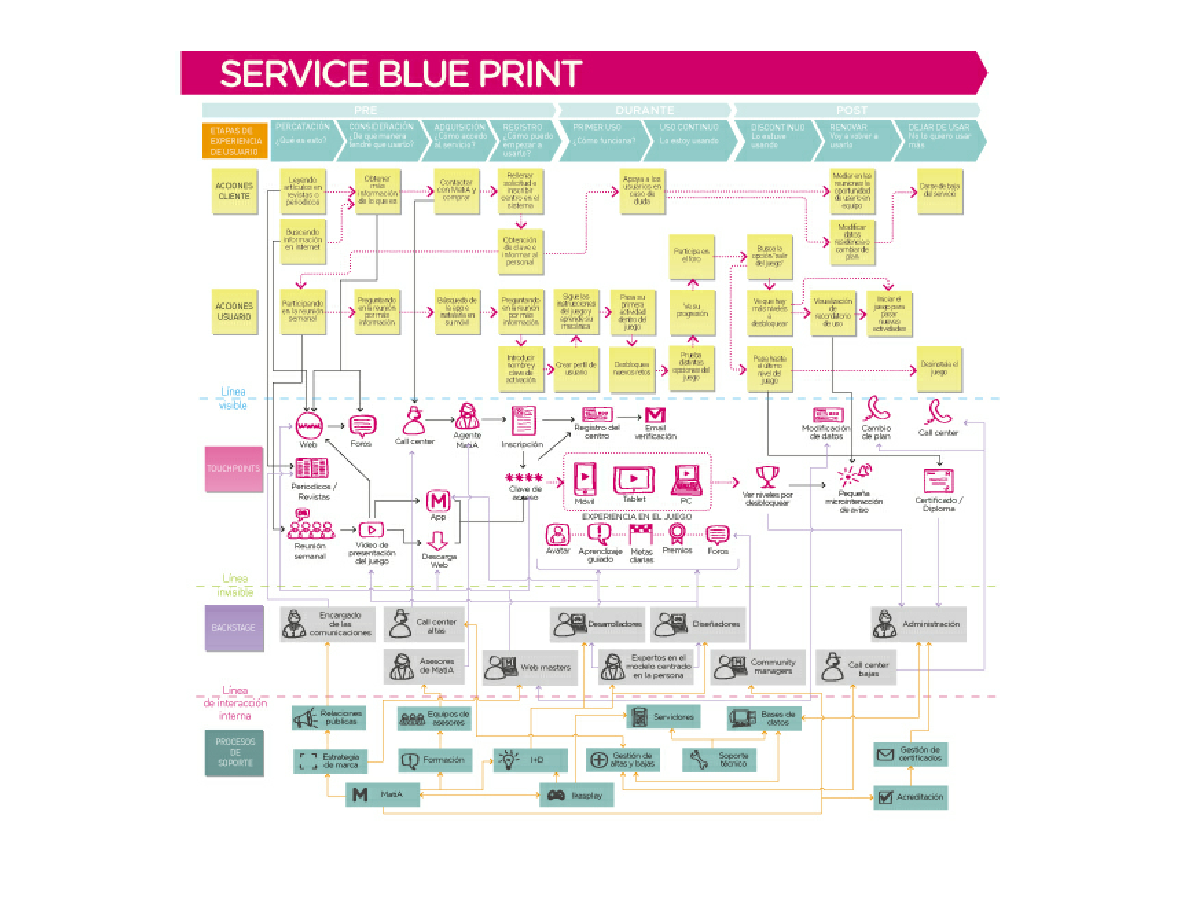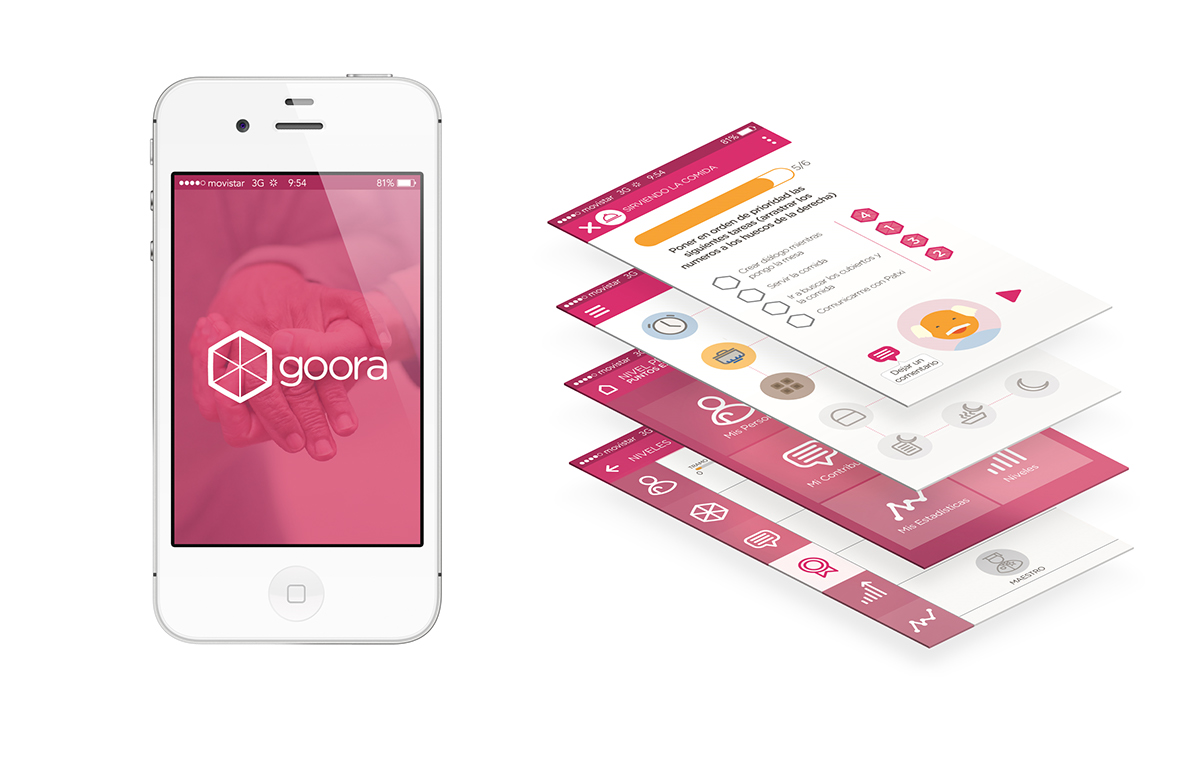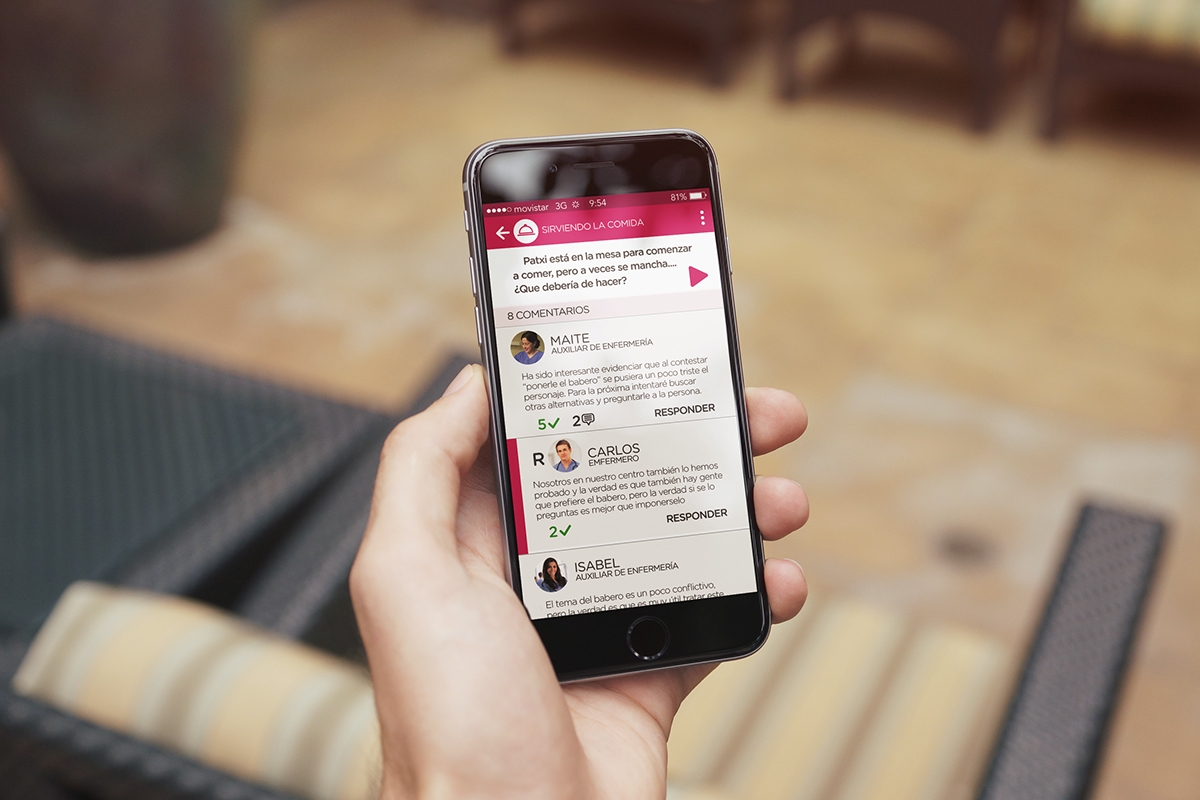Serious Game for Person-Centered Care
Changing the mindset of attention in geriatric centers

Person-centered care model has been from a while gradually being integrated among geriatric centers all around the world to improve seniors experience. It is a way of attending, identifying and meeting seniors needs to improve their quality of life.
This requires time and the creation of new dynamics that impacted in current know-hows and service culture. Based in the idea of improving seniors' experience and lifestyle, the goal of this project was to design a serious game to help in the transformation of geriatric centers from their attention focused on the service to an attention focused on the person. In other words, the goal was transmitting the new model's know-how and good practices to the direct care staff (auxiliaries, caregivers or other related) within geriatric centers.

The project would require an initial deep research to understand how the service was delivered in geriatric centers that did not apply the person-centered care model, as well as identifying the different stakeholders involved.
It was crucial to learn and understand how geriatric centers work and the new model of attention. We had access to the new model's knowledge provided by Matia Fundazioa and we could notice the differences in both models almost at a glance.
For example, the big difference between models is the freedom and choice that is given to seniors based on their mental and physical conditions to live their daily lives. While in the person-centered care model seniors could feel like at home, in the traditional model seniors were treated as patients.

We prepared different interviews with stakeholders, both directors and direct care staff of geriatric centers, as well as, elderly people of these centers and their family members. We also visited some of these centers and observed some of the activities carried out.
Due to the amount of information it was necessary to use different visual tools to understand all the different involved stakeholders.

We discovered that the actions and cautions of the direct care staffs vary according to the seniors' physical and mental capabilities. As the tasks and responsabilities of carers varied depending on those conditions, we built customer journey maps based in 4 personas that represented the extremes of carers action based in these health conditions.

We divided the health conditions in mental and physical conditions. So the customer journeys would represent the actions and emotions of carers in the daily lives of seniors with:
- Good physical and mental conditions.
- Bad physical conditions (physical disabiities) and good mental conditions.
- Good physical conditions and bad mental conditions (senile dementia).
- Bad physical and mental conditions.
The customer journeys would map the direct care staff experience dealing with some of the most critical cases with seniors, so we could find opportunities of improvement by applying the new model's know-how. It was the most complete and clear way to represent all the complexity that all the research was bringing up.
It was analyzed every step of a day of a senior in geriactric centers based in the desk research and interviews.

We identified some of the most challenging situations of carers have to face in their work. All this information, cases, stories and situations helped to find a great amount of content ideas and opportunities that could be included in the future design solution applying the person-centered care model.
We also connected all the stakeholders involved in a Service Blueprint to see how everything could work together to not only provide a successful design solution, but also making it work strategically.
The serious game would not motivate the care staff itself to play at home for example, it required as well the compromise of the care center. Centers managers from one side and Matia Fundaziona as the entity that would provide the knowledge through the app.
The app would be a tool would allow the care staff to grasp the knowledge and start applying it in the daily basis.
For this reason, we also thought that it would be important to provide certifications for centers and staff who finished the serious game and passed an exam. Endorsing care individuals, teams and care centers would reflect a better attention and lifestyle for their seniors and residents, therefore a better quality service and more peace of mind for their families members.

We researched different app interfaces related to guidance and learning. The one that stood out the most was Duolingo. Its design based in gamification encourages its usage and engagement. Duolingo would become our inspiration to apply in our design. We also studied other apps that could bring ideas to format the information and knowledge of the person-centered care model.

With the data and insights gathered in the previous stages, we organized a co-creation session with people of different disciplines to brainstorm. Through this process we generated the format of the serious game, in other words how the different challenges could be presented. .

As it has been mentioned above, the final design was inspired in the gamification observed in Duolingo. We divided the different sections of the app with relevant information and states to keep the user engaged.
The serious game would start in a basic level of difficulty, ‘caring’ of a virtual senior with a good physical and mental condition. The challenge would be increasing changing to virtual seniors with more delicated conditions where the carer would have to know how to act.

Throught short questions/quizzes related to the story of the virtual senior character, carers would have to test their skills and get feedback according to the good practices of the ‘Person-centered care model’.
It was defined a section of forums where carers could exchange knowledge with other carers that are part of the community. The use of rankings, levels upgrade, teams progress and the skills hexagon section would be the elements that would encorage the growth of carers to learn and improve using gamification. Users could see what are what skills they need to focus more to keep improving.

The game was designed to be used both individually and as a team: individually in order to complete tasks with the criterion of each member of the staff, and as a team to generate discussion and consensus on the proposed topics.
We also created a mid-fi prototype to demo the experience and test some basic features throught the screens. This design was just the starting point for development, since it still would require entire teams to define different challenges/quizzes to populate the serious game with content and make more rounds of testing with users.
The prototype was tested in a basic level to gather some feedback from carers and it was extremely positive. They loved the format how the game was organized as well as the use of the senior character that would display an emotional state depending on the attention received (through the answers given to the quizes and challenges)

The biggest benefit of this design solution would not be just the way how the complexity of the new knowledge is learned and applied, but also how the experience and applied dynamics would improve both seniors lifestyle and carers experience during challenging situations.

The name given to the app was based in the basque words “gora” (let’s go!, come up!) and “gogoratu” (remember). The name responds to motivation towards new learning, raising awareness and remembering how to give better care to people on a day-to-day basis.
The final step would be designing the service packages that Matia Fundazioa would provide to geriatric centers to apply this knowledge through the app.




